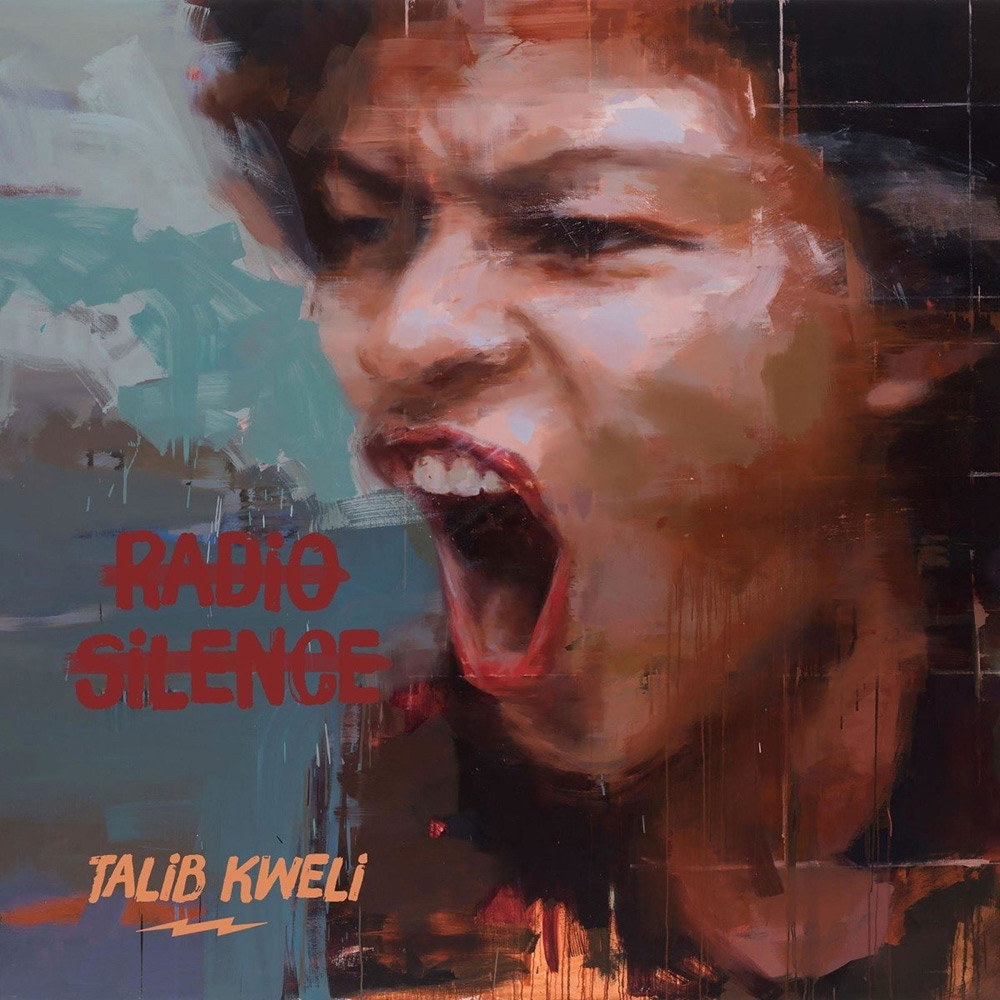Review: Talib Kweli – Radio Silence

CNN once labeled him a “thinking man’s rapper”. As a social activist and revered MC, Talib Kweli is definitely one of the standard bearers for conscious rap. Teaming up with his comrade in the struggle, Talib Kweli and Mos Def sealed their fate as hip-hop legends almost 20 years ago with the release of Black Star, the duo’s only album to date. Since then, Kweli’s music has served a great purpose in representing a voice that is missing from mainstream hip-hop culture. But beyond the music, Talib Kweli the activist, the social critic, the rabble-rouser is empowered by his platform as a public figure on Twitter, particularly when tackling white supremacy head-on. As an activist, he’s keen on the truth that when you ignore racism, it does not just go away. If you don’t actively fight it, racism gains more power. Nelson Mandela’s inspired words to live by have become his mantra: “Fools multiply when wise men remain silent.” However, Talib Kweli was never in danger of remaining silent. His strong political views and Afrocentric identity are the hallmarks of his career since his days as an underground rapper in NYC during the 90s. Since then he’s spoken out on police brutality and prison reform, while standing with Ferguson and the Dream Defenders. His most recent album, Radio Silence, is the latest installment of Kweli’s anti-mainstream, for-the-people contribution to the canon of hip-hop music. The title comes from his position that the radio is not indicative of what’s going on in true hip-hop culture. If you only listen to the radio, he reasons, you won’t know what’s really going on in hip-hop, especially in this digital age. We’re at a point where Kweli has established enough “cultural currency”, as he calls it, to create an album with little radio appeal yet doesn’t need the radio to reach his audience. If the radio goes silent tomorrow, Kweli is convinced that his fans will, in fact, still know where to find him.
Since releasing his first solo album Quality in 2002, and his sophomore effort The Beautiful Struggle in 2004, Talib Kweli continues to evolve as a recording artist. Radio Silence has a rich musicality to it because of where Kweli is in life as a musician. Though he recently released a collabo beats and rhymes album with Styles P, he wanted this project to be more encompassing with how songs were built. There are a lot of melodic piano, strings, and horns because he wanted to explore different parts of himself as a musician, and on the album he collaborates with people who are honest artists that love hip-hop music. The LP begins with strings as vocal ooo’s segue into a funky guitar loop on “The Magic Hour” where Talib is pretty confident that hip-hop will flourish with nourishment and proper care. “Traveling Light”, featuring Anderson .Paak, is a busy track with layered drums and choppy horns where Kweli totes being the voice of a generation that is very silent. “All Of Us”, featuring a verse from Jay Electronica and background vocals by Yummy Bingham, opens with a timeless yet relevant call-and-response led by exiled political activist Assata Shakur. The song rallies the oppressed and all of us who have felt the collective social trauma to use our power to continue fighting. “She’s My Hero” is a tribute based on the true story of Bresha Meadows, a girl arrested at 14 for killing her father after enduring years of domestic abuse against her family. That her only option was to murder her father weighed heavily on Kweli’s mind, so he wanted to try and tell the story from her perspective.
The track “Radio Silence” is a stripped-down, syncopated beat where Kweli spits a rapid-fire flow that follows up on the theme of the album title. “The One I Love” is the obligatory ode to fidelity and commitment as Kweli swears off all other women for his true love and the relationship they’ve built together, for better or worse. Inspired by years of listening to the music for “Heads Up Eyes Open”, he finally found the words for the song that welcomes Rick Ross and Yummy Bingham. While we wouldn’t automatically assume that Ross would have something positive and introspective to say, he’s found the space to do that with Kweli. “Let It Roll” has a sing-songy chorus about getting paper, but it’s a worthy contribution to the album when you realize how much Kweli is on the road earning the hard earned dollars on which his family lives. “Write At Home” featuring Datcha, Bilal, and Robert Glasper is the crown jewel of the album where he brings his vision full circle for the culture. It’s evident that as a legacy artist with a history in hip-hop, Talib Kweli is maturing as his audience matures, and we’re glad to go along on this journey with him.
Written by Mai Perkins
Originally from Los Angeles, Mai Perkins is living a genuine bona fide love affair with NYC and the music that keeps its spirit moving. While spending the majority of the last decade in Brooklyn, many of her adventures around the globe are documented on her blog: Mai On The Move! www.MaiOnTheMove.com
Author’s rating for Radio Silence

Pop Magazine’s official rating for Radio Silence

Rating key
 MASTERPIECE a must-have
MASTERPIECE a must-have
 SUPERB for heavy rotation
SUPERB for heavy rotation
 EXCELLENT a great achievement
EXCELLENT a great achievement
 VERY GOOD a respectable result
VERY GOOD a respectable result
 GOOD worth checking out
GOOD worth checking out
 FAIR an average outcome
FAIR an average outcome
 WEAK not convincing stuff
WEAK not convincing stuff
 BAD an underwhelming effort
BAD an underwhelming effort
 VERY BAD quite a waste
VERY BAD quite a waste
 FAIL a total failure
FAIL a total failure




















Write a Comment